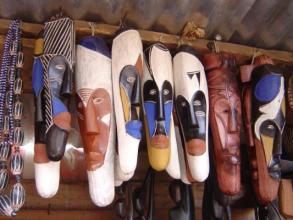ANOTHER massive protest is looming on Wednesday (today) with a view to force President Robert Mugabe to step down.
Coordinators of the protests called #Tajamuka/Sesijikile insists they were going ahead with the massive protests despite police’s heavy-handedness on innocent civilians.
The protests for Wednesday are set to take place in the country’s five mjor cities with the view to make a complete shutdown of business in the capital Harare, Bulawayo, Gweru, Mutare and Masvingo.
The #Tajamuka/Sesijikile’s coordinator, Hardlife Mudzingwa, said enough was enough with abject poverty arguing the suffering was being caused by corrupt ZANU PF leaders, disappearance of R225 billion, abuse of power, police brutality and worsening unemployment in the country.
However, the group pointed out the protests would not go violent sincethey believed in peace and stability, but were quick to say when attacked by police would retaliate.
“We are not a violent campaign and we will not involve ourselves in violence,” Mudzingwa said.
He said president Mugabe was expected to step down from power before December arguing no amount of police brutality would intimidate them nor stop the organised protests from going ahead.
Speaking at the same media briefing, #ThisFlower campaign leader Stern Zvorwadza, who came out from police cells following his arrest last week said the coalition would continue piling relentless pressure on the Zanu PF and Mugabe until they relinquish power.
“This day should be historic and be a day that we say enough is enough. As we participate in this process, we should not be deterred by the brutality of the State. We should stay clear in mind and clear in heart that the fight is on and this fight will end the game,” Zvorwadza said.
Meanwhile, war veterans have warned Mugabe from risking eroding his legacy by refusing to step down even when he is old.
The former freedom fighters said Mugabe’s refusal would also expose his wife Grace Mugabe and children when forced to leave office.
Zimbabwe National Liberation War Veterans’ Association (ZNLWVA) secretary-general Victor Matemadanda said Mugabe’s wife was allowing herself to be used by ‘vultures’ within the ruling Zanu PF to make reckless statements that created many enemies around the country.
“Mugabe is soiling his own legacy by overstaying. There is no need to force things. He is creating trouble for his children by antagonising everyone, we feel for his wife and children,” Matemadanda said.
“Grace is allowing herself to be abused by criminal elements in Zanu PF to create enemies. She is being used by people with an ulterior motive to destroy Zanu PF and she should be warned,” he said.







